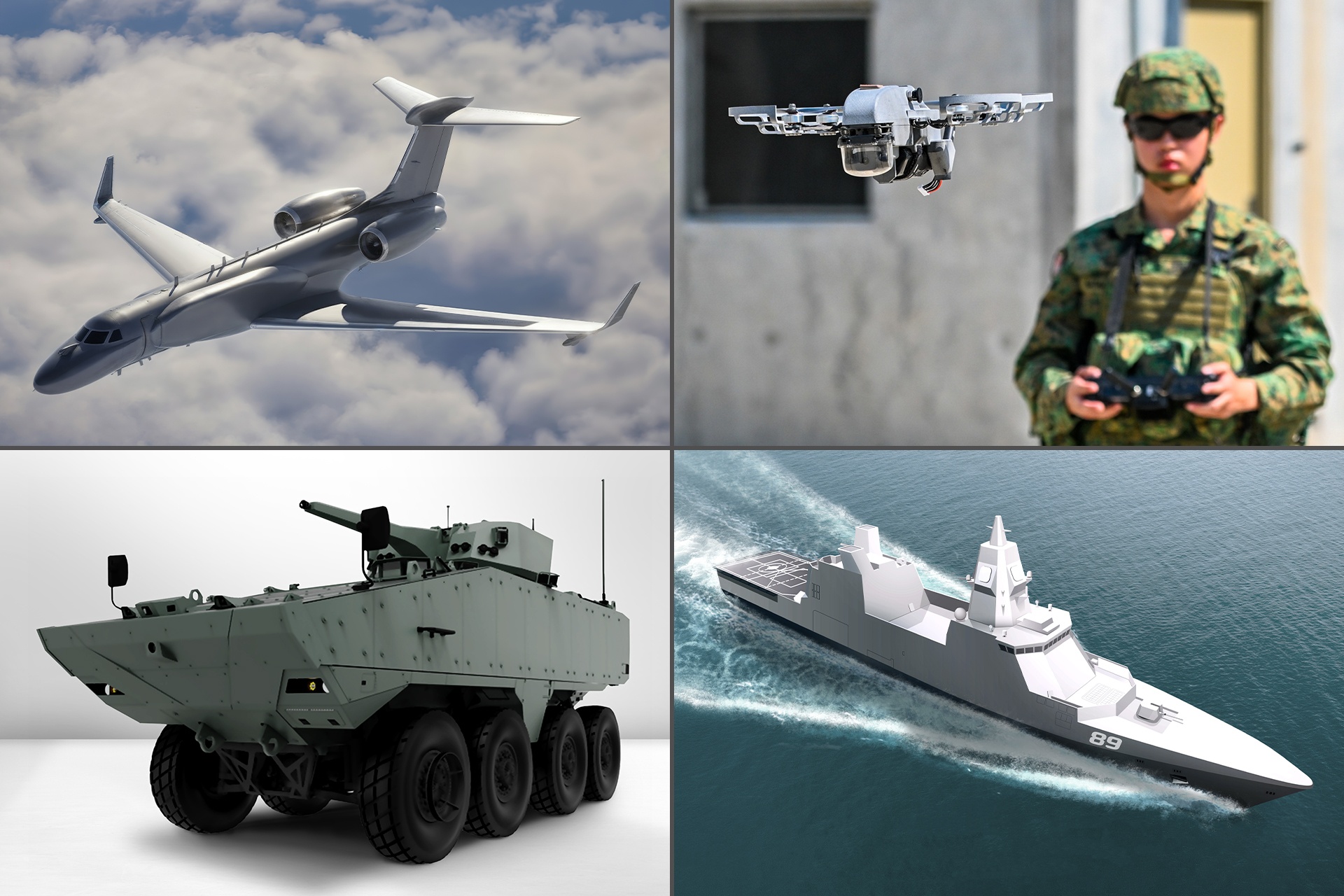OPS & TRAINING
SAF medical team supporting S’pore aid contributions to Gaza
05 Feb 2024
LTC (Dr) Nazirul Hannan Bin Abdul Aziz and ME3 Jimmy Woo, who recently returned from their deployment in Egypt, share their experiences providing medical assistance to casualties from Gaza.
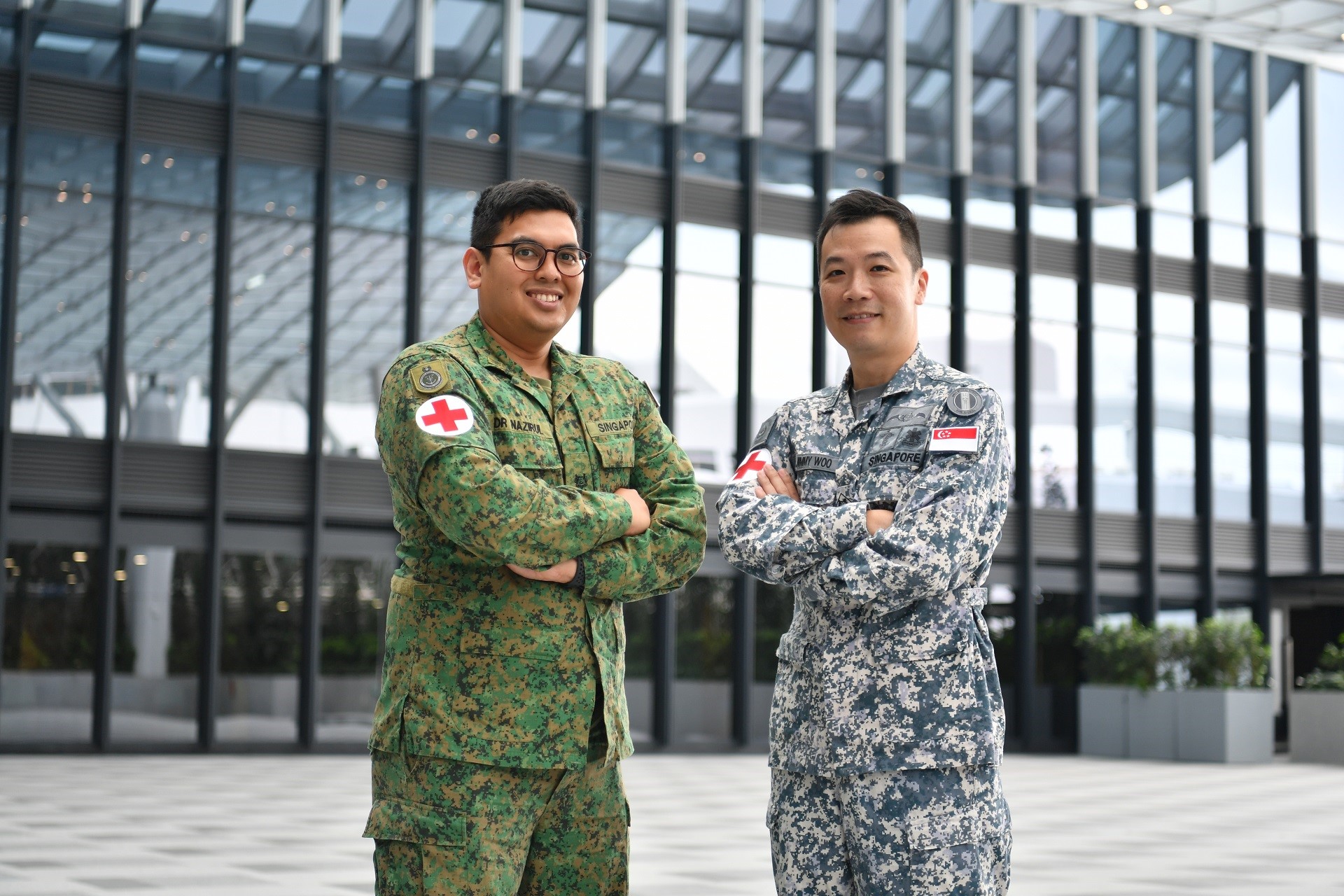
A malnourished 6-year-old girl suffering a bad infection at her right leg stump. A 22-year-old lady with an infected amputated right leg.
These were some of the casualties that Lieutenant Colonel (LTC) (Dr) Nazirul Hannan Bin Abdul Aziz and Military Expert (ME) 3 Jimmy Woo encountered while they were deployed on board French helicopter carrier FS Dixmude, a reconfigured hospital ship docked at Egypt's El-Arish Port.
"These are scenarios you don't see every day in Singapore, but they were a common occurrence there," said LTC (Dr) Nazirul, 35.
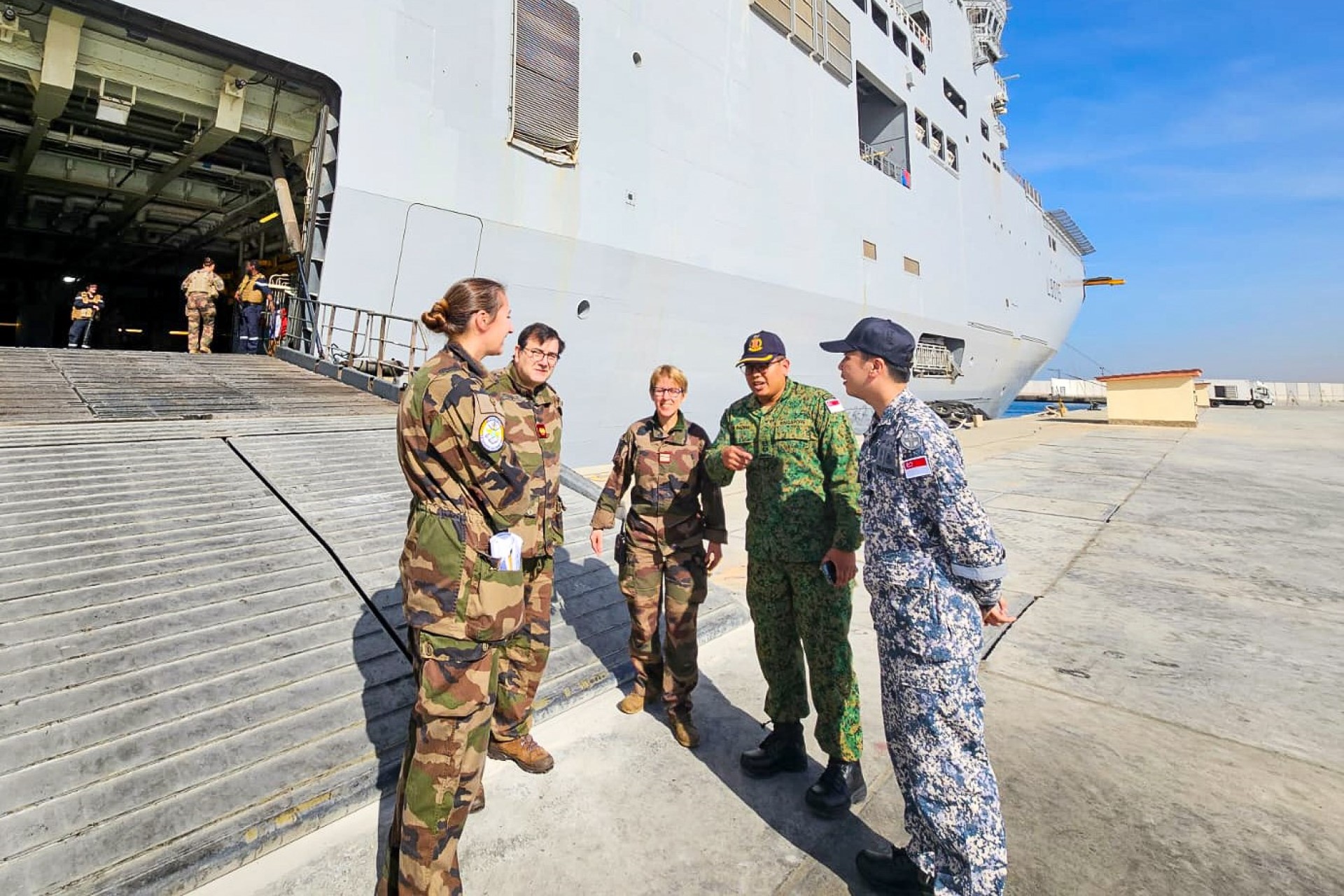
A qualified specialist in emergency medicine, LTC (Dr) Nazirul is Head Operations Branch in the Singapore Armed Forces (SAF) Military Medicine Institute.
ME3 Woo is a lead medical operations expert in the Republic of Singapore Navy's Medical Flotilla. The 38-year-old also specialises as an operating theatre scrub nurse as well as in perioperative training.
They made up the two-man SAF medical team sent to Egypt to help with casualty treatment, in support of Singapore's humanitarian aid contributions to Gaza, upon invitation from the French Armed Forces.
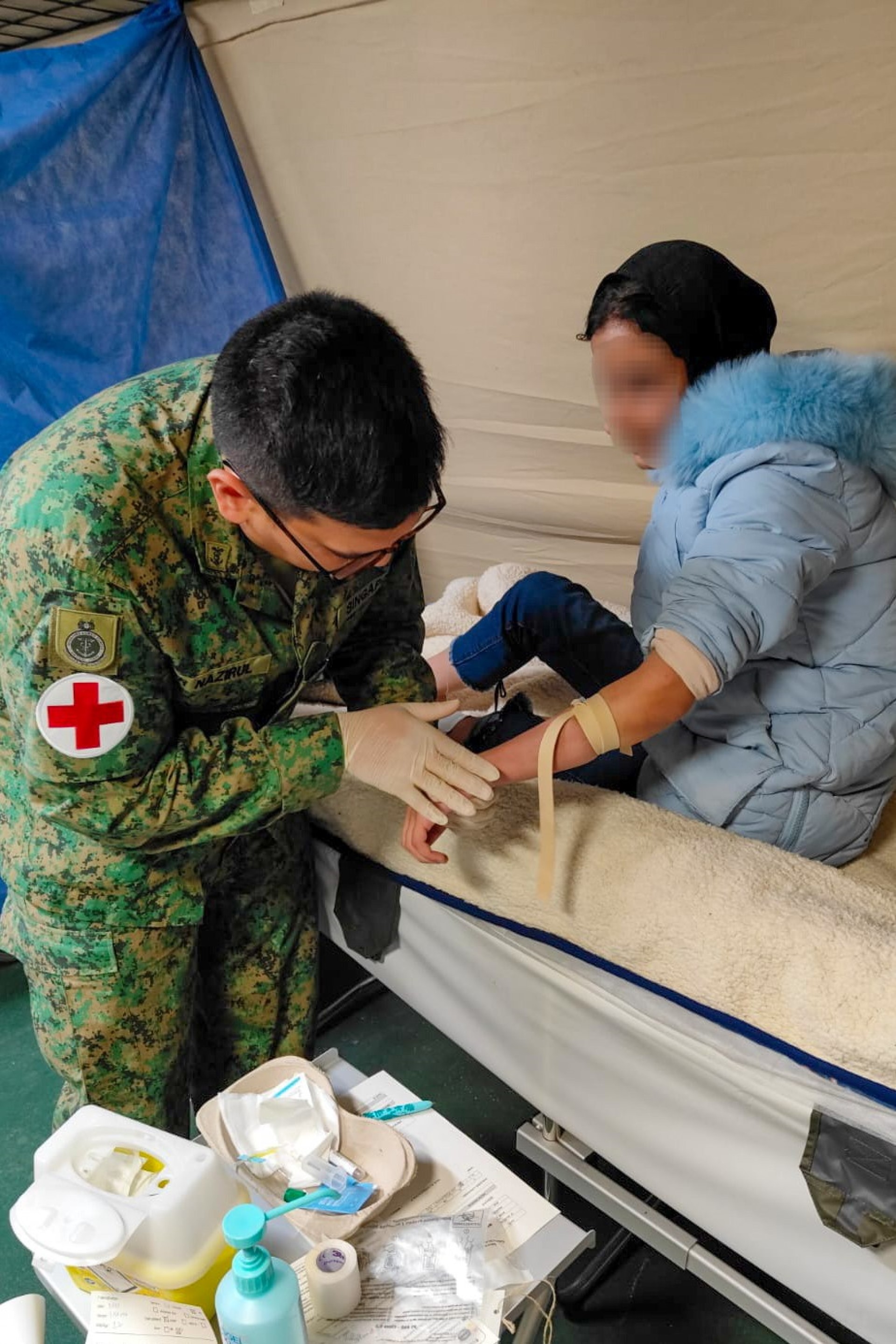
Overcoming language barriers
Both men left Singapore on 17 Jan and reached FS Dixmude a day later, after almost 24 hours of travelling.
They had barely settled in when they were activated to attend to a group of casualties arriving on the ship that night.
"Our medical training immediately kicked in. We focused on what needed to be done and what more we could do to make (the casualties) better," recalled LTC (Dr) Nazirul.
Language barriers was an immediate challenge the pair had to face. The main language of communication among the medical teams was French, while most of the patients spoke Arabic. There were only a handful who spoke simple English.
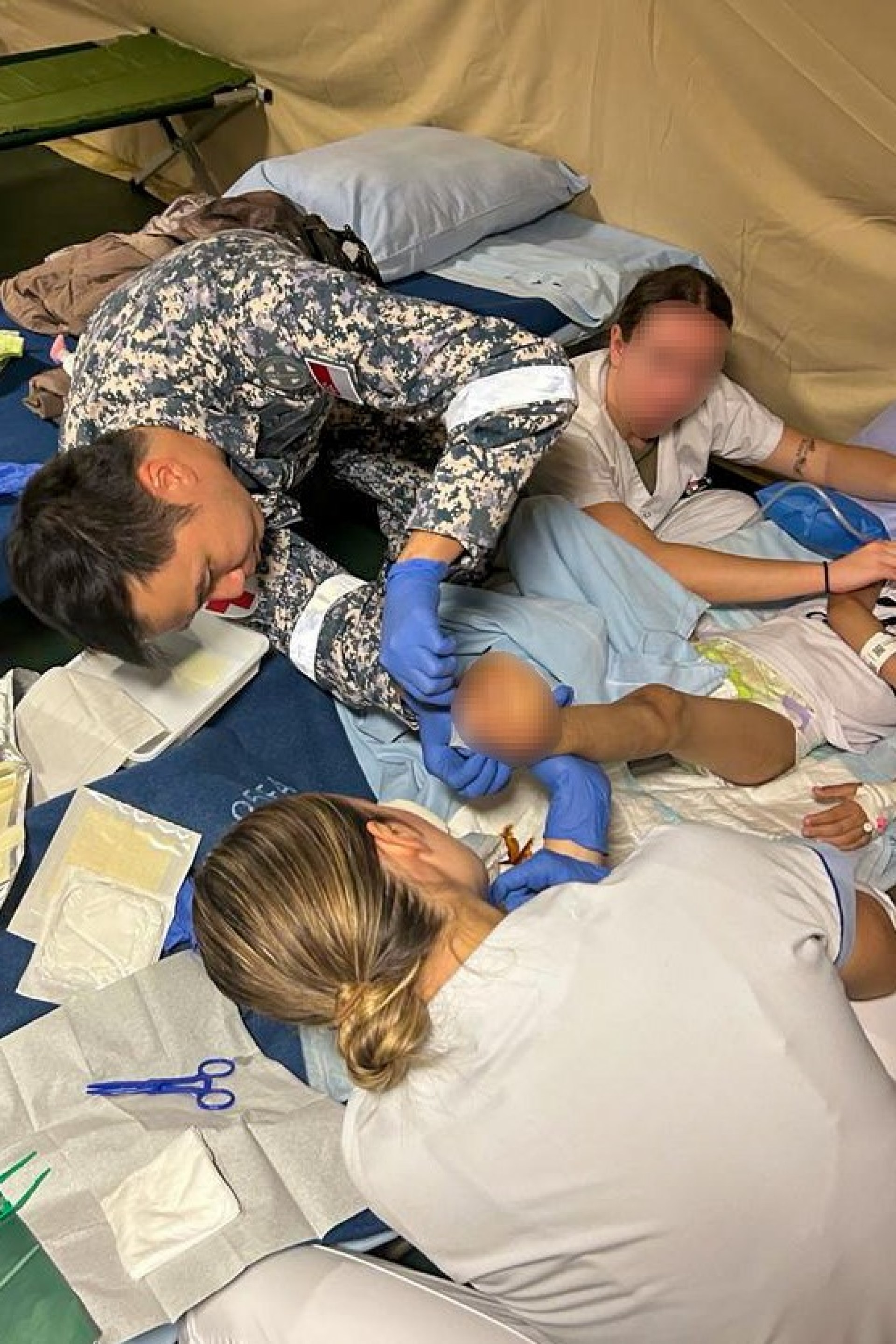
Even so, both LTC (Dr) Nazirul and ME3 Woo were unfazed and relied mostly on their medical experience to treat the casualties in the triage area, which was akin to the Accident & Emergency department of the ship.
"The steps for treating and dressing a wound are the same regardless of which country you are in, so we just communicated through hand gestures," said ME3 Woo.
LTC (Dr) Nazirul added: "Language is just a tool and we're glad we found a space in which we could contribute."
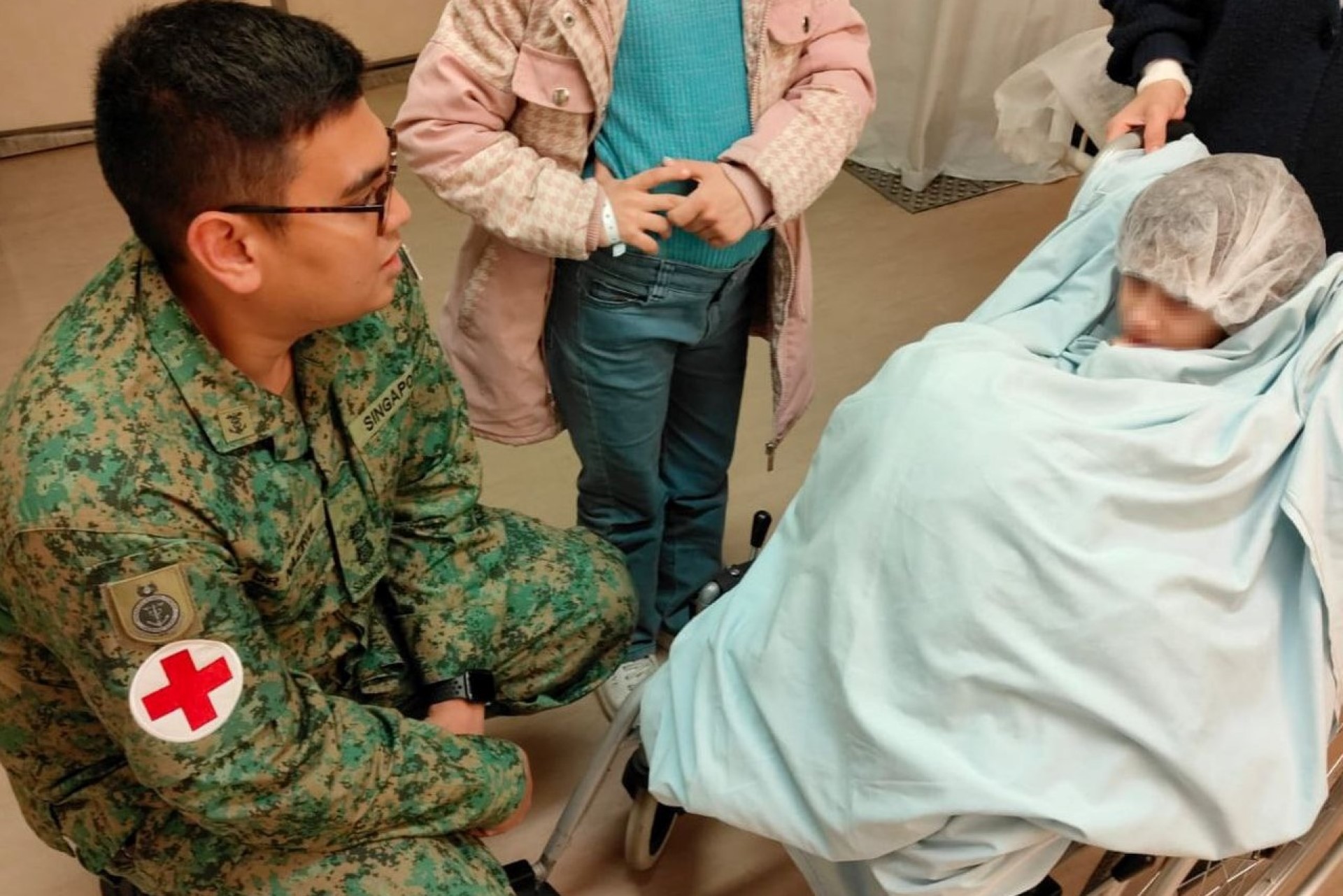
Treating casualties
Among the numerous patients that the SAF medical team treated was a 6-year-old girl, who had been very distraught when arriving on board ship. Her right leg had been amputated and she was nursing a bad infection.
Filled with pain, fear and anxiousness, the girl would not let anyone touch her. In the end, she had to be put under anaesthesia in order to be examined.
LTC (Dr) Nazirul realised that the girl's infection was drug-resistant and she had to undergo surgery in the end. "This is something you don't see in Singapore and it was a very tragic case."
For ME3 Woo, the patient who left a strong impression on him was a 22-year-old lady with an infection on her amputated right leg. She was hit by shrapnel and had to have her leg amputated when it got infected.
"She spoke simple English and I found out that she learnt the language when she was studying international relations in a university in Gaza. I just felt bad for her 'cos she has a bright future but then this happened," said ME3 Woo.
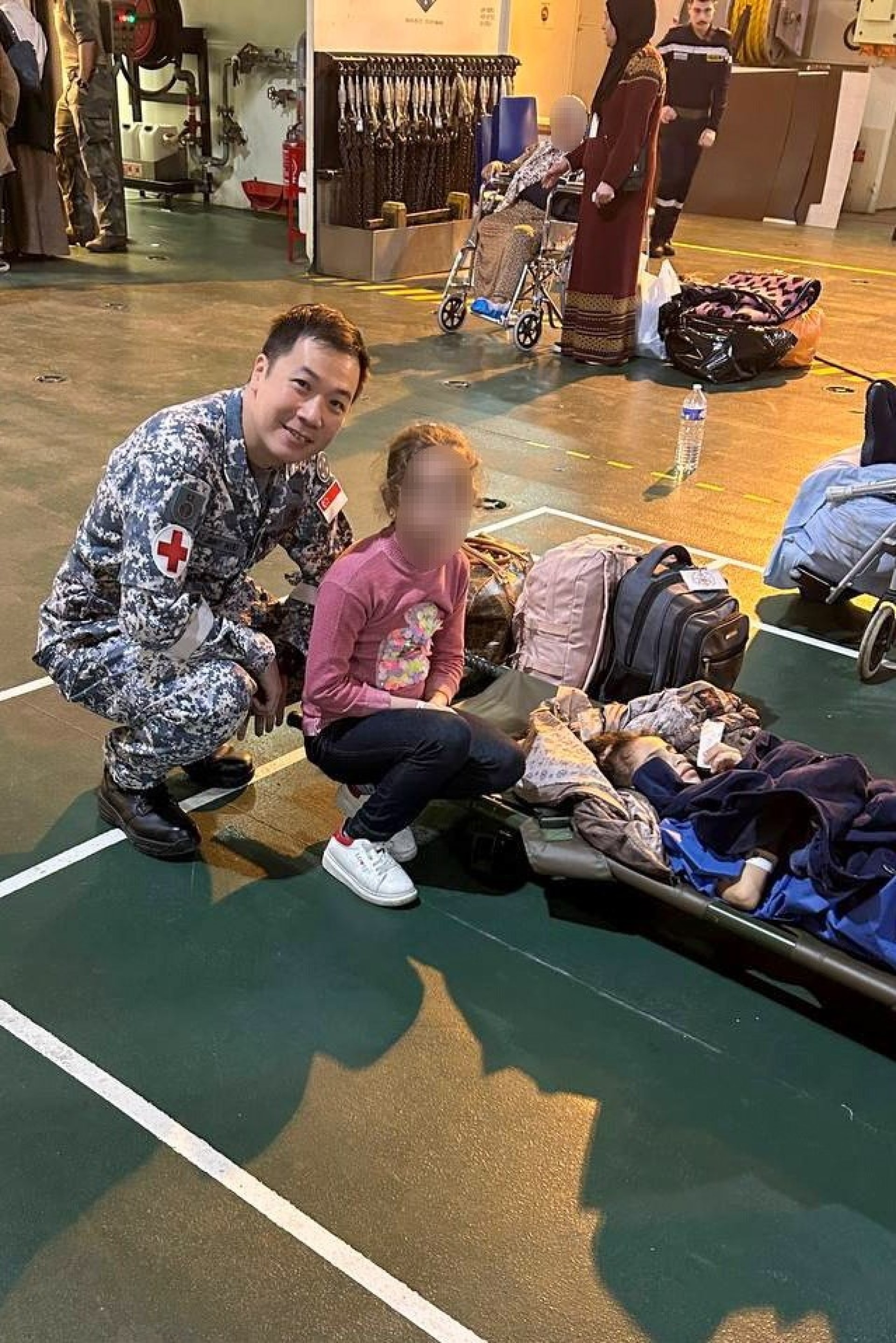
Unbreakable spirit
Despite going through the horrors of war, most of the casualties still maintained a positive outlook in life – something that both men took away from their deployment.
"As medical personnel, we tend to get drawn into the patients' emotions and situation and wonder what the future holds for them.
"At the same time, I see them being so resilient and positive in spite of all they went through – some even played basketball with us when they were better!" said LTC (Dr) Nazirul.
ME3 Woo added: "We draw strength from them and we tell ourselves this is why we do what we do – that no matter how tough the job is, it is worth it."
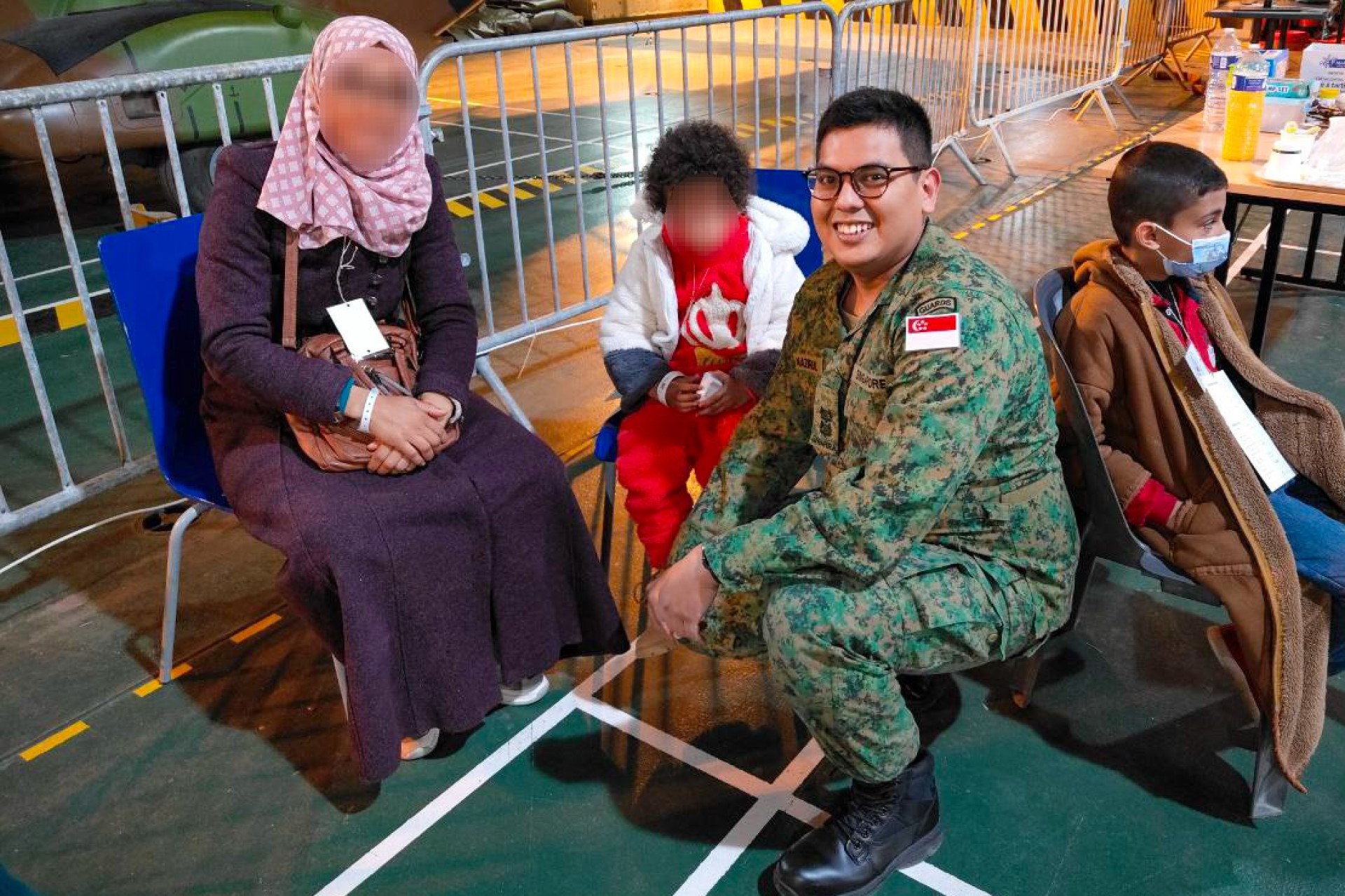
Flying the Singapore flag high
Treating casualties on the ship had its fair share of challenges, but LTC (Dr) Nazirul and ME3 Woo were glad that they went for the deployment.
They were proud to say that they were from Singapore when asked and everyone on the ship – medical team and patients – was impressed with the long journey they took to get there.
"We had to carry our flag high as there were a lot of different countries on the ship. It was important how we presented ourselves," said ME3 Woo.
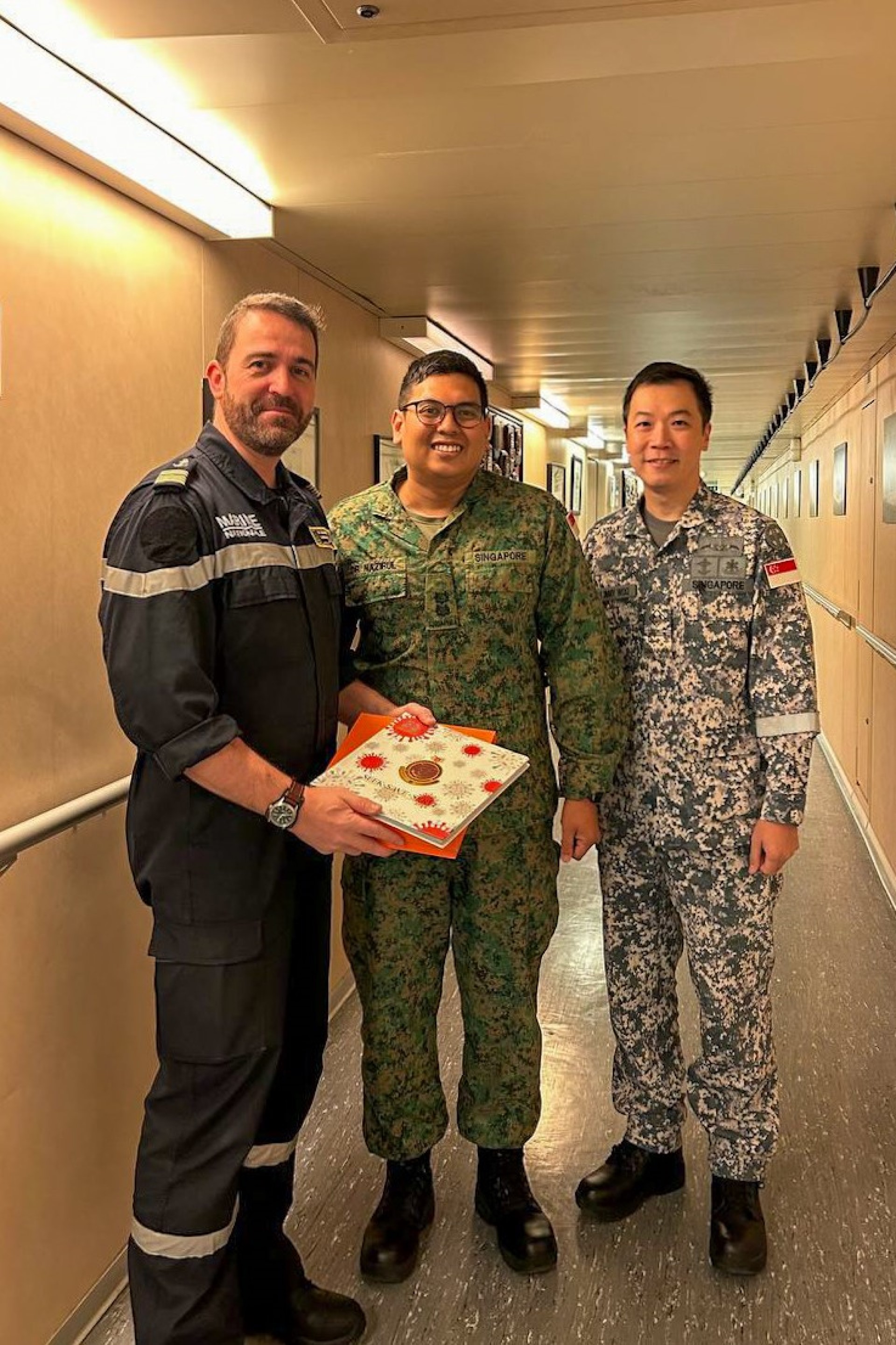
Peace doesn't come easy
When the French Armed Forces decided it was time for the ship to leave the port, their deployment ended and they returned to Singapore on 28 Jan.
While it felt good to be home, memories of their time there still remain fresh in their minds.
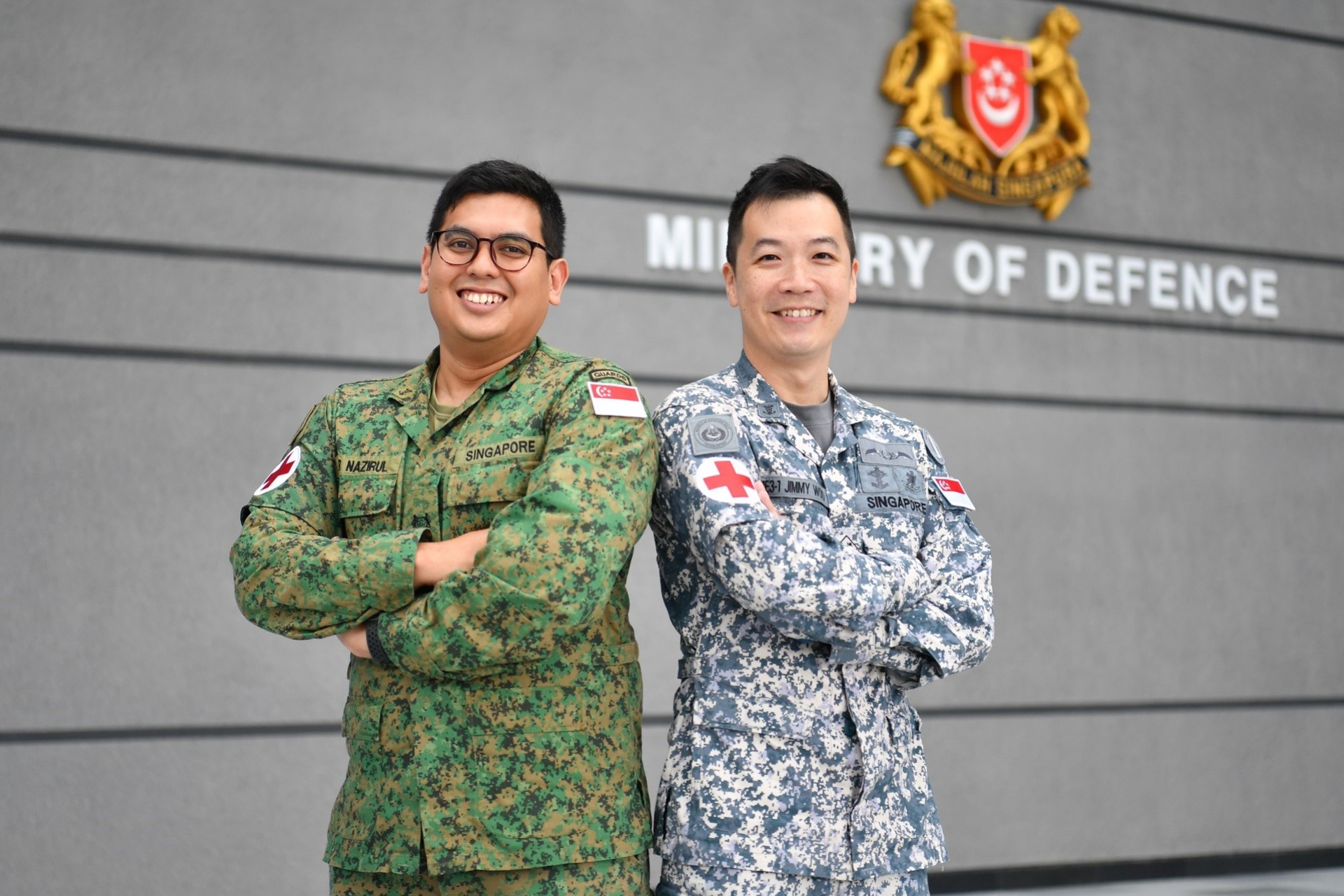
For LTC (Dr) Nazirul, interactions with his patients brought home the tragedy of war. The first thing he did when he got home was to hug his kids, aged 2 and 4, a little tighter.
"I never really fully understood why, in this day and age, people have to suffer like this. It's really tragic and nobody deserves to be in that state," said the father-of-two, who has another child on the way.
For ME3 Woo, it was that "peace doesn't come easy". Singaporeans have plenty to learn from the young kids in Gaza, he noted.
"It's about cherishing whatever we have, having the resilience and unbreakable spirit (to believe) that, no matter how bad things are, there is always tomorrow."
ALSO READ IN OPS & TRAINING
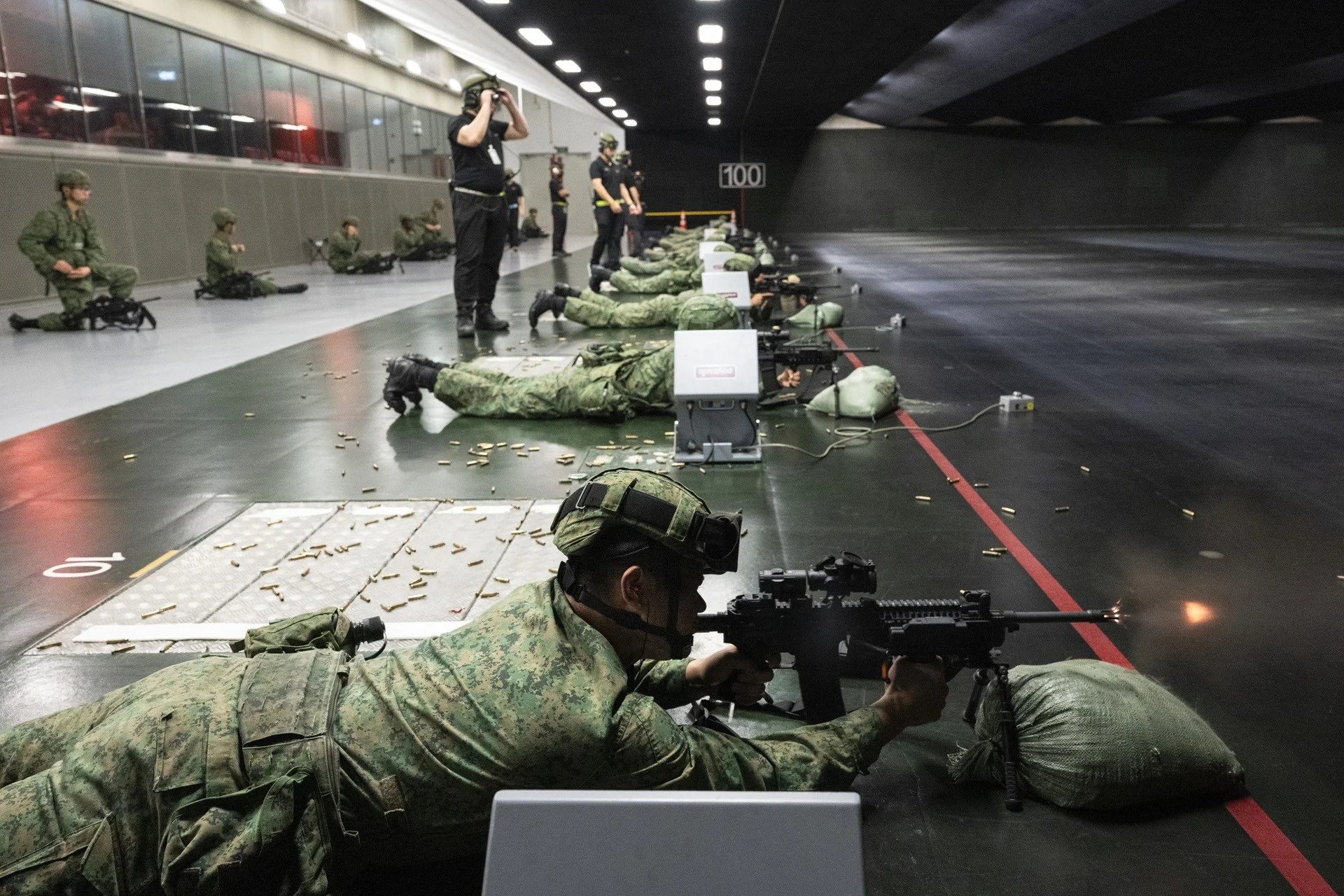
New firing range complex at Bedok Camp; Medical Classification System to be redesigned
27 Feb 2026
To train soldiers for a more complex environment, the SAF will build a new Multi-Mission Range Complex, as well as introduce opportunities for national servicemen to take on new roles, and more ways to volunteer.
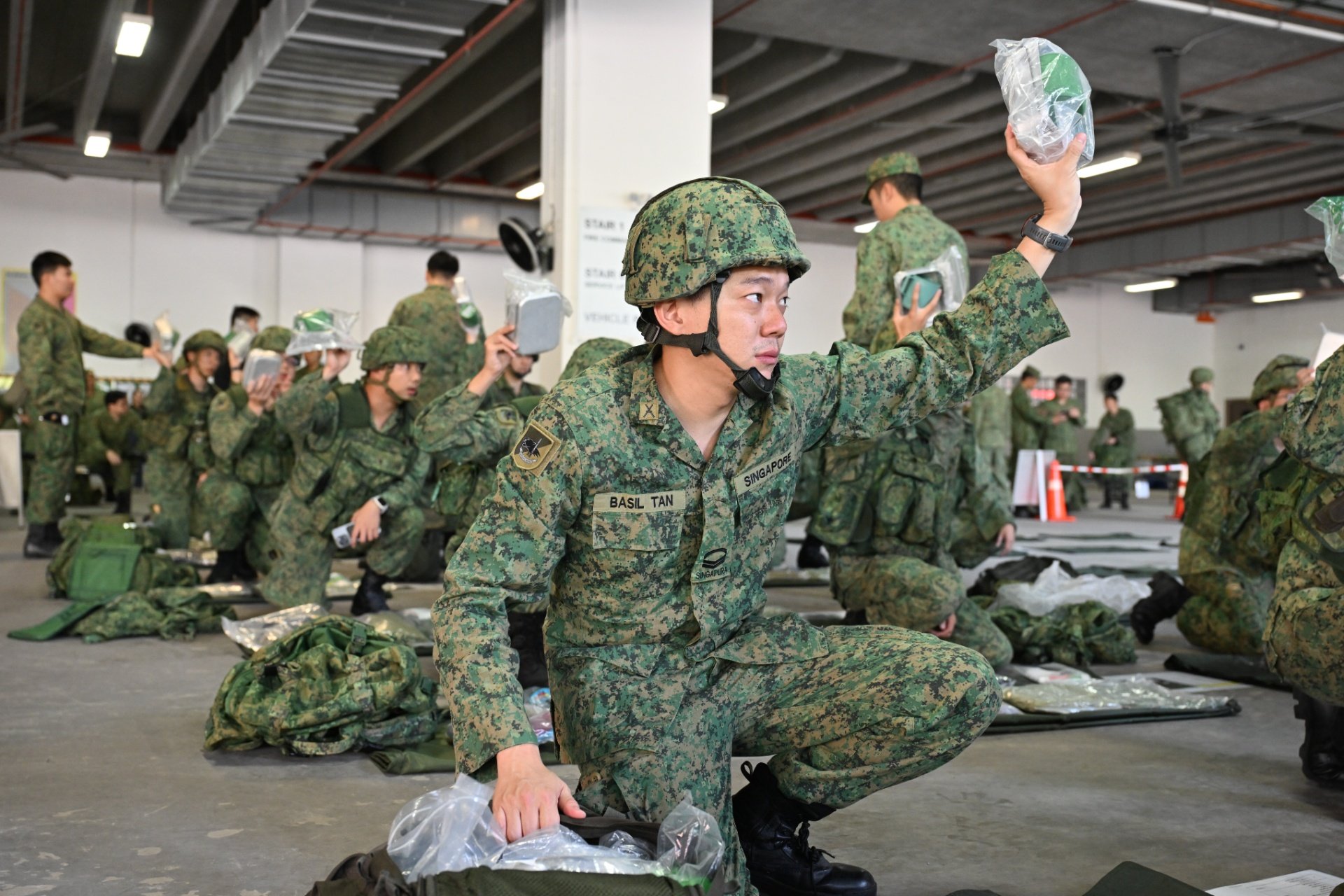
Reaffirming their commitment to defence
07 Feb 2026
Over 3,000 NSmen displayed their commitment to Singapore’s defence at a MOBEX in Selarang Camp.
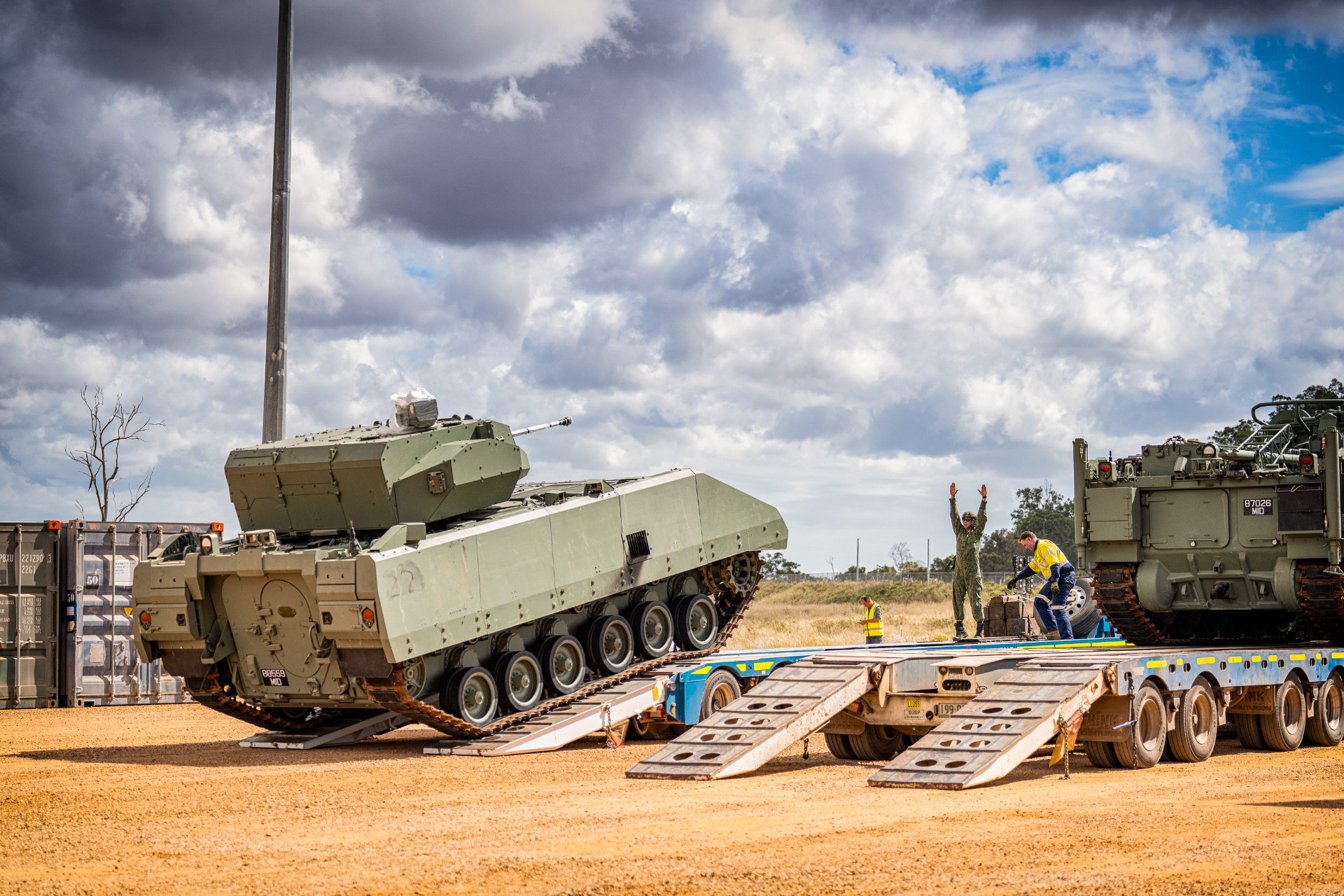
First in, last out at Ex Wallaby 2025
06 Nov 2025
Meet the teams who toil behind the scenes to enable the smooth conduct of the SAF’s biggest unilateral overseas exercise.


